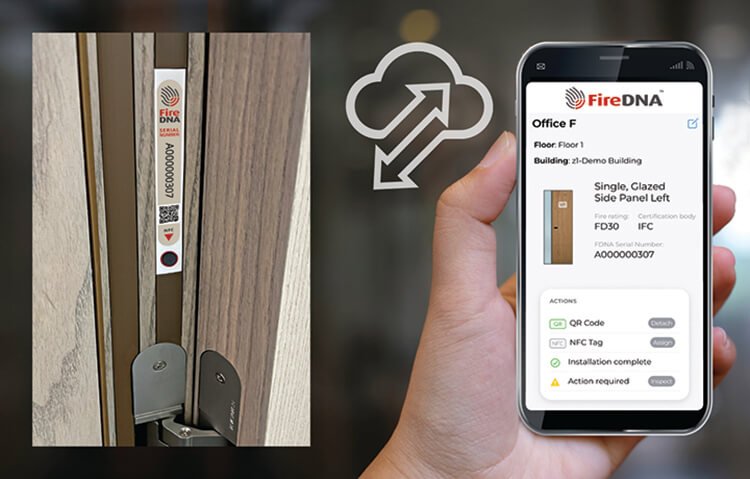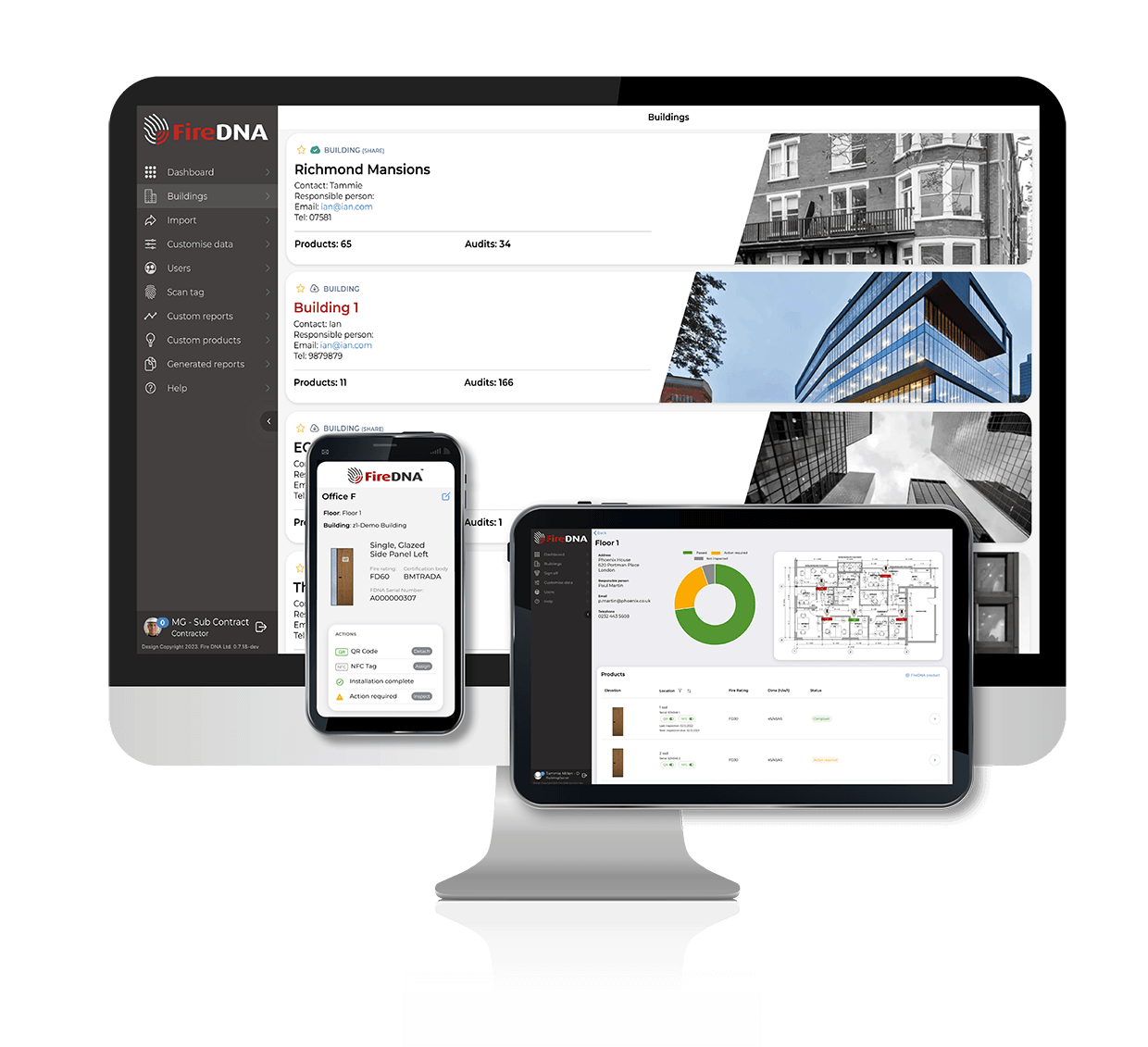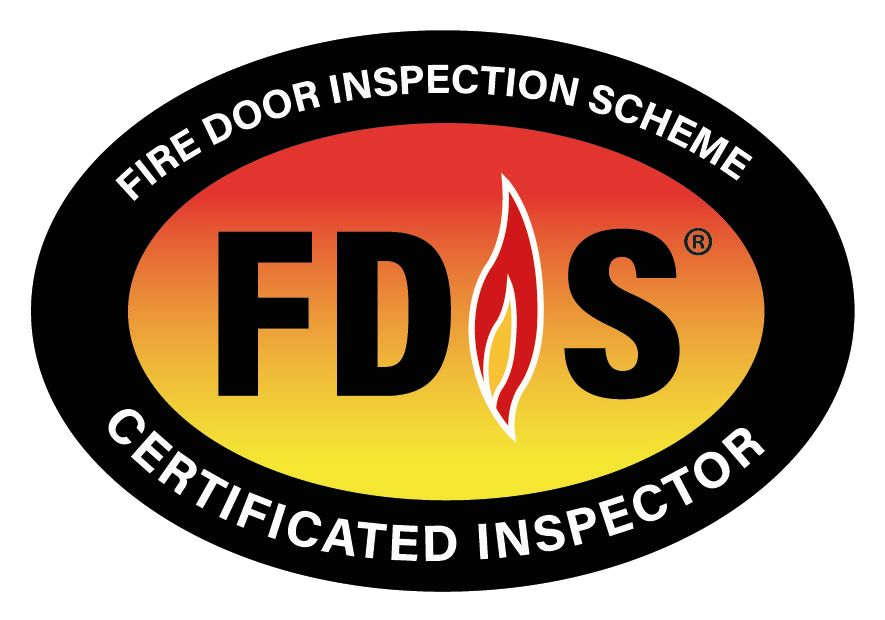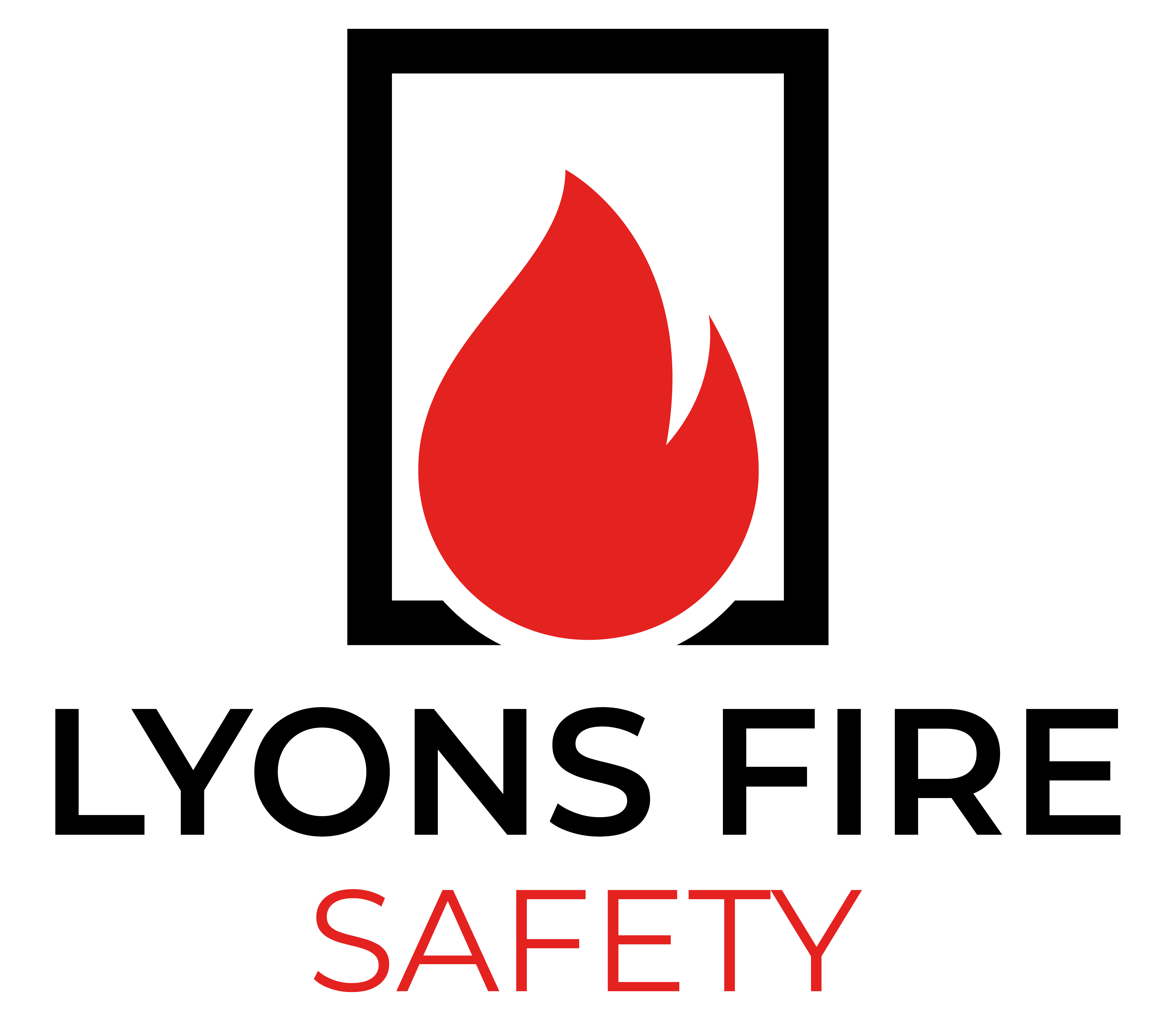Passive Fire Protection: Safeguarding Lives and Property with Lyons Fire Safety
Passive fire protection (PFP) stands as a critical line of defence. It encompasses measures designed to contain or slow fire’s spread within buildings. This buys invaluable time for evacuation and emergency response. In the UK, PFP is an integral part of fire safety strategies. It is regulated by Building Regulations, specifically Approved Document B (fire safety).
At Lyons Fire Safety (LFS), we specialise in comprehensive PFP solutions. Our expertise ensures commercial and residential properties comply with stringent fire safety standards. Protecting lives and assets is our utmost priority with every job we take.
Here, we’ll take a look at passive fire protection. How it works. Why it’s essential. And how we at Lyons Fire Safety can ensure safe installation, maintenance and inspections of PFP products and assets.
What is Passive Fire Protection (PFP)?
Passive Fire Protection (PFP) refers to the built-in fire-resistant components and systems within a building that are designed to contain or slow the spread of fire and smoke without requiring any external activation or movement. Its purpose is to contain fires within their area of origin, provide sufficient time for occupant evacuation, and limit structural damage, all without relying on any active systems like sprinklers or alarms. PFP measures are an integral part of a building’s design and construction, remaining dormant until exposed to fire.
Key Aspects of Passive Fire Protection in the UK
Compartmentation:
Dividing buildings into fire-resistant compartments using fire-rated walls, floors, and doors. This contains fire and smoke within a single area.
Fire-resistant construction materials:
Utilising materials like fire-resistant boards, intumescent coatings, and fire-stopping products. These prevent fire spread through walls, floors, and service penetrations.
Fire-rated doors and dampers:
Installing fire-rated doors, smoke curtains, and dampers. These prevent the spread of fire and smoke through openings and ventilation systems
Third-party accreditation:
PFP products and installations must be certified by accredited third-party organisations. These include FIRAS, LPCB, and BM TRADA to ensure regulatory compliance.
You can take a look at our dedicated page – Understanding UK Fire Safety Laws and Legislation – here, to getting a better grasp on your responsibilities regarding passive fire protections, and understanding laws and regulations.
Fire-Rated Doors and Dampers
Controlling Smoke and Fire Spread Fire-rated doors and dampers are critical components of PFP systems. They prevent the uncontrolled spread of fire and smoke through openings and ventilation systems.
At LFS, we install fire-rated doors with precision. Ensuring they meet stringent standards like FD30 or FD60, providing 30 to 60 minutes of fire resistance. Our fire dampers are strategically placed in ductwork to prevent smoke from circulating through HVAC systems.
Regular Inspection and Maintenance
To uphold the efficacy of fire-rated doors and dampers, Lyons Fire Safety offers comprehensive inspection and maintenance services. Our team of experts conducts thorough assessments, ensuring these vital components remain in optimal condition, free from obstructions or defects that could compromise their performance.
By investing in professional installation, inspection, and maintenance of fire-rated doors and dampers, commercial property owners, managers, homeowners, can all rest assured that their passive fire protection measures are robust, compliant, and prepared to safeguard lives and assets when the need arises.
Elevating Fire Safety with Cutting-Edge Digital Solutions
At Lyons Fire Safety, we are committed to staying ahead of the curve in fire safety management. This commitment drives our adoption of cutting-edge digital solutions like the FireDNA platform.
Harnessing the power of ‘Golden Thread’ technology, this ground-breaking software weaves a comprehensive digital tapestry that spans the entire lifecycle of our passive fire protection installations.
Seamless Integration of Digital Data Threads
COMPREHENSIVE DIGITAL FOOTPRINT
FireDNA establishes a unified digital footprint that interconnects all stakeholders involved in the passive fire protection process. From product specifications and third-party certifications to digitised installation manuals, every aspect is meticulously documented, ensuring strict adherence to industry standards.
REAL-TIME DATA CAPTURE
Our skilled technicians leverage FireDNA’s capabilities to capture real-time data during installations. This creates an immutable digital record, documenting every step with precision and transparency.
ENHANCED TRACEABILITY
The digital thread enables unparalleled traceability, tracking installers, components, and quality control measures with granular detail, fostering a culture of accountability.
STREAMLINED COMPLIANCE MANAGEMENT
FireDNA’s intelligent algorithms simplify compliance tracking, automating the process of adhering to regulations and maintenance schedules, reducing the risk of oversight.
METICULOUS MAINTENANCE LOGGING:
Detailed digital logs meticulously document all maintenance and inspection activities, ensuring that passive fire protection systems remain effective throughout their lifespan.
TRANSPARENT CLIENT ACCESS:
Our clients gain unprecedented transparency through secure, cloud-based access to their installation records, fostering trust and peace of mind.
By integrating FireDNA’s cutting-edge ‘Golden Thread’ technology, we are setting new benchmarks for accountability, transparency, and safety in passive fire protection installations For us at LFS, this digital innovation streamlines monitoring passive fire products. It makes documentation easier, enhances traceability, and ultimately contributes to a safer, more secure built environment for our clients.


You can read more on “golden thread” technology and our use of the FireDNA software here, on our dedicated page
FAQs: Passive Fire Protection
What is the role of fire-stopping in passive fire protection?
Fire-stopping refers to sealing any gaps or penetrations in fire-rated walls, floors, or partitions. It prevents the spread of fire, smoke, and toxic gases through these openings. At LFS, we use certified fire-stopping products and methodologies to maintain the integrity of compartmentation.
Can existing buildings be retrofitted with passive fire protection measures?
Absolutely. While incorporating PFP measures during construction is ideal, existing buildings can be retrofitted. At LFS, we conduct thorough assessments and implement compartmentation, fire-resistant materials, and fire-rated components to enhance fire safety in older structures.
How frequently should passive fire protection systems be inspected and maintained?
Regular inspections and maintenance are crucial for ensuring PFP systems remain effective. We recommend annual inspections and scheduled maintenance based on manufacturers’ guidelines and regulatory requirements. This proactively identifies and addresses any issues before they compromise fire safety.
What are intumescent coatings, and why are they important?
Intumescent coatings are specialised fire-resistant paints or varnishes. When exposed to heat, they expand and form an insulating char. This seals gaps and prevents fire from penetrating through walls, floors, and service openings. LFS extensively uses certified intumescent coatings as part of our PFP solutions.
How does passive fire protection contribute to a building's overall fire safety strategy?
Passive fire protection is a crucial component of a comprehensive fire safety strategy. It complements active fire protection measures like sprinklers and alarms. By containing fire and smoke, PFP buys valuable time for occupants to evacuate safely and emergency responders to intervene effectively.
Choose Lyons Fire Safety for Trusted Passive Fire Protection Solutions
Safeguarding lives and assets is a responsibility we take seriously at Lyons Fire Safety. Our expertise in passive fire protection ensures your commercial, facility and residential properties meets and exceeds fire safety standards. Don’t compromise on fire safety – partner with LFS for:
- Comprehensive fire risk assessments tailored to your commercial environment
- Detailed inspections to identify gaps in your current PFP measures Installation of fire-rated walls, floors, doors, and dampers for robust compartmentation
- Application of fire-resistant materials and intumescent coatings
- Third-party certified products and installations for regulatory compliance
- Regular maintenance and inspection services to uphold fire safety over time
With our innovative use of FireDNA’s ‘Golden Thread’ technology, you’ll have unprecedented transparency and peace of mind. Secure your property, protect your occupants, and enjoy the confidence that comes with a robust passive fire protection strategy from LFS.
Phone: 0121 517 0562
Email: david@lyonsfiresafety.co.uk
Lyons Fire Safety: Your Trusted Partner in Passive Fire Protection, products & assets.


